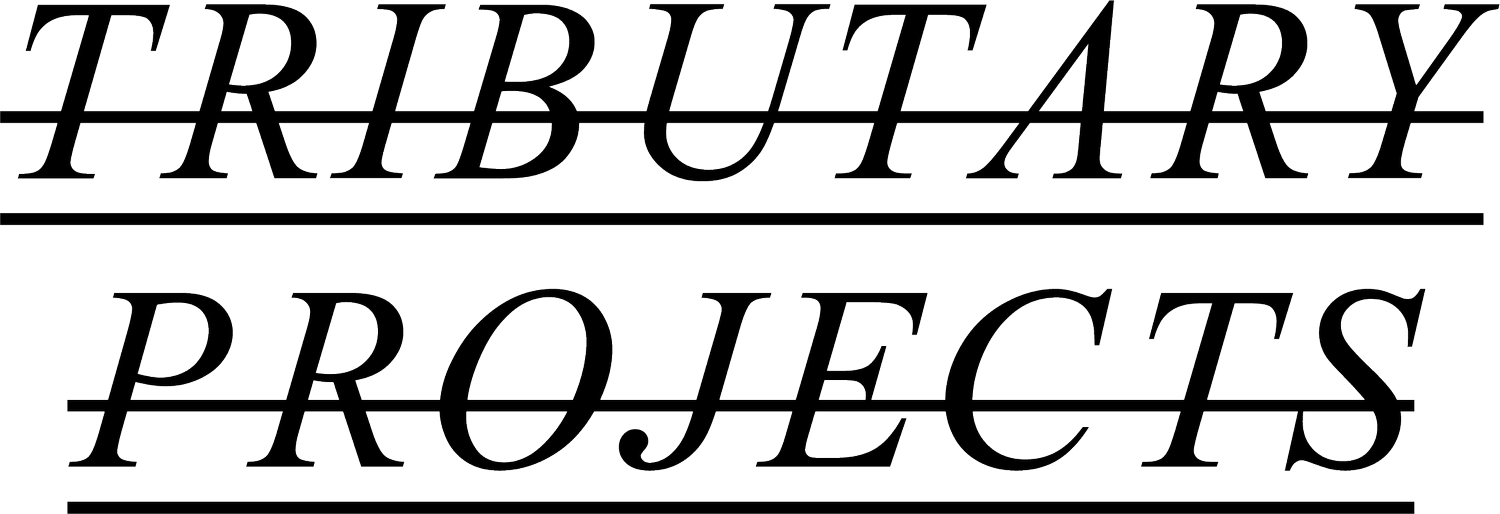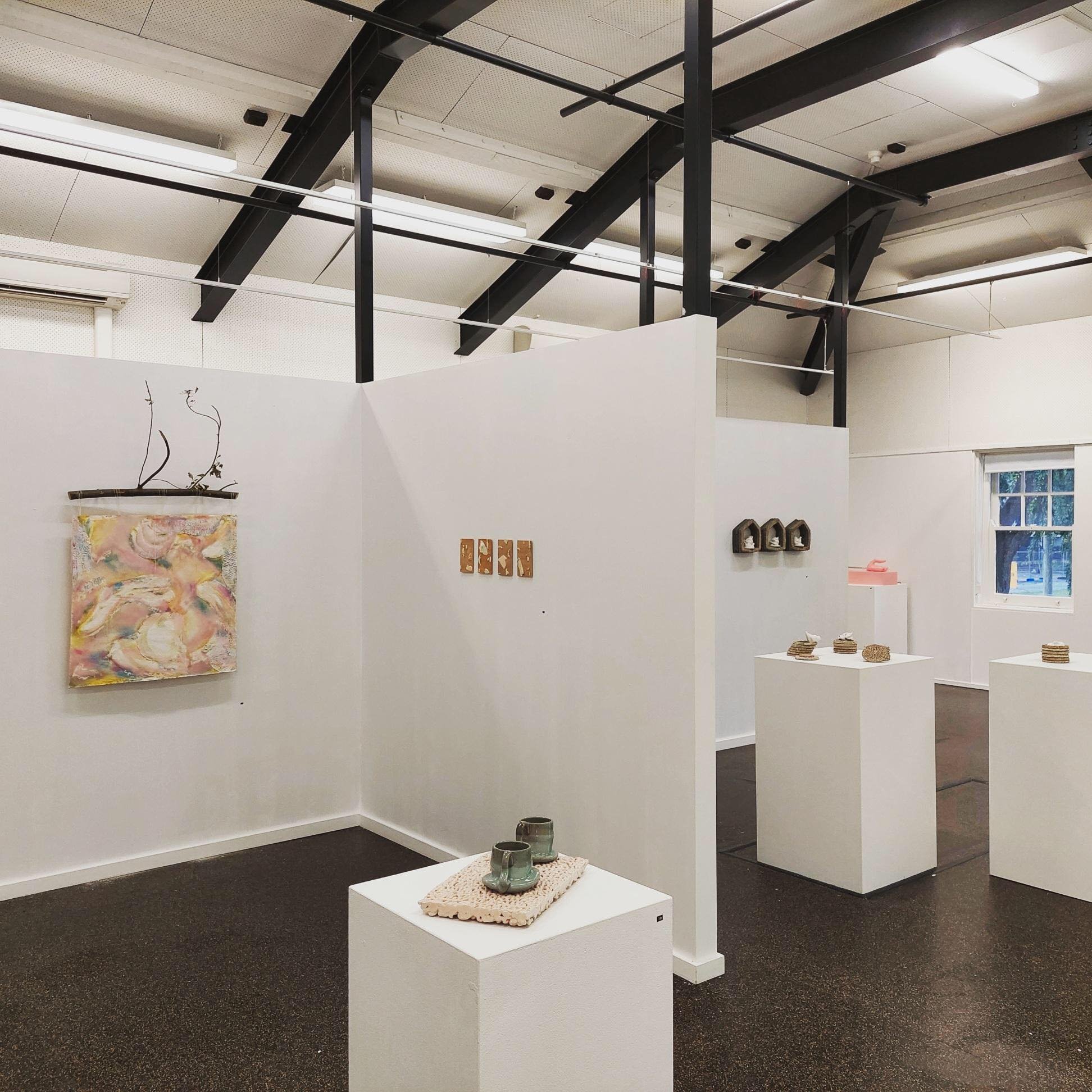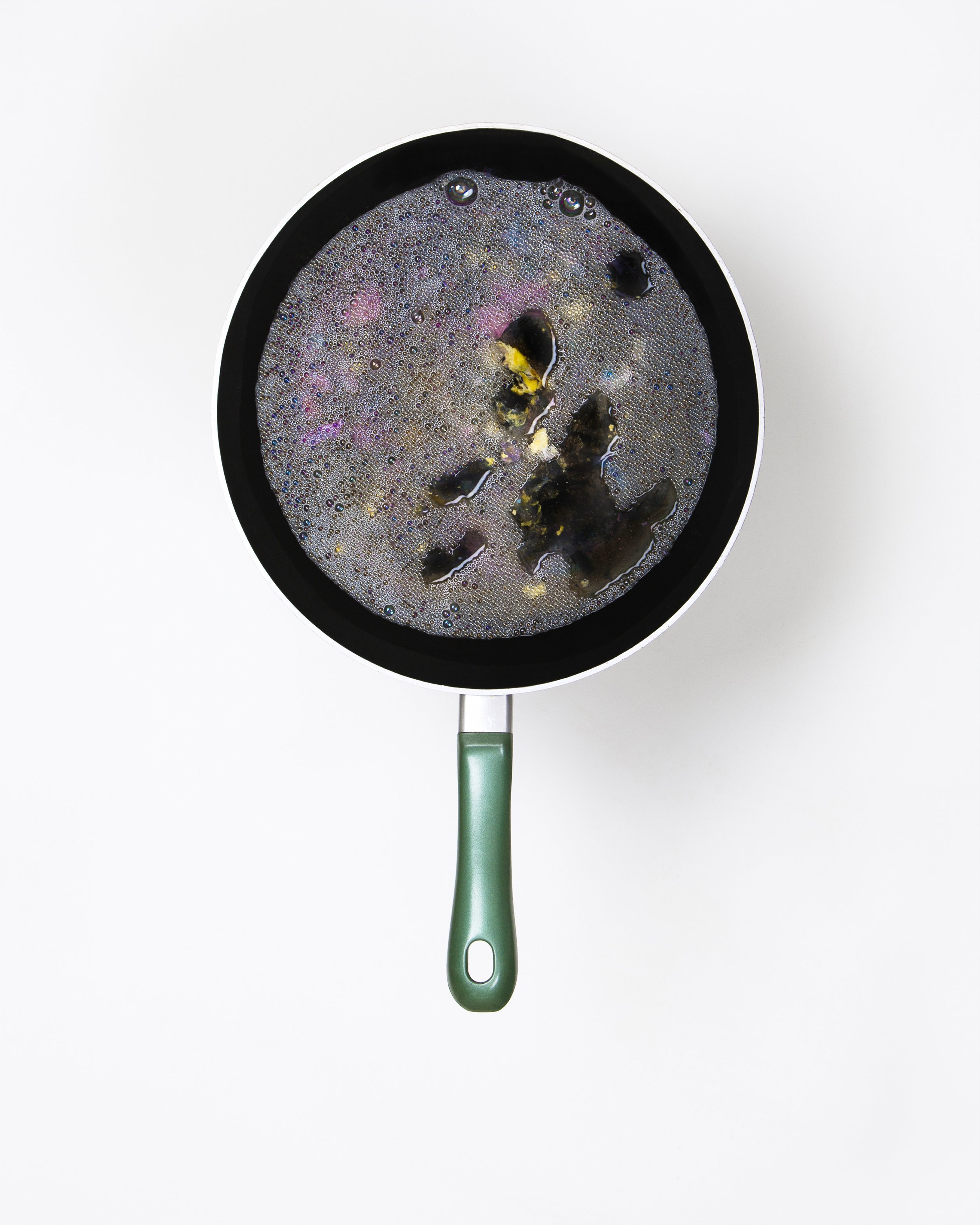We wish to pay our respects to the traditional owners and custodians of the lands and waters on which we operate, the Ngunawal, Ngunnawal and Ngambri peoples. We acknowledge that sovereignty was never ceded and this land always has been and always will be Aboriginal land.
Sophie Dumaresq, Black Hole #1 (2014), eggs, cleaning products, coloured dyes and frying pan
13th - 29th Jan
Mundane Attachment
Mundane Attachment explores our relationship with, and connection to objects: their use, existence, and most importantly their transformation. Drawing on the rich history and theories of the ‘readymade,’ alongside the distinct familiarity of everyday sights and objects, this exhibition highlights the place of common, mundane, and everyday items in our lives.
Featuring a range of works by local contemporary artists -Lucy Chetcuti, Lillian Dorman, Sophie Dumaresq, Roz Hall, Adeline Higgins and Rose Shen-Ju Hsieh - the object is transformed, appropriated and examined. Sometimes the central subject and other times a supporting element in the wider artwork, each artist showcases a wide range of material practice and a dynamic exploration of the everyday.
Curated by Joyce Fan.
Online opening 20th Jan 5:30pm
https://xyz.us15.list-manage.com/track/click?u=9132720f2e313a10670138934&id=a2e8121cd2&e=5e60e4abb6
Miss in-person exhibitions but still want to stay inside?
Come join our opening night to see the online exhibition. Learn about the exhibition and artworks from the comfort and safety of your own home, and get a feel for the online gallery space. Join with friends and chat with them or talk with artists. No account needed, just create your avatar and enter the gallery space.
Instructions:
- Click the link and create your avatar.
- Complete the easy tutorial
- Enter the gallery space and enjoy your time!
[Computer and stable Wi-fi connection recommended for the best experience]
Coming 20 January 2022 - Mundane Attachment Catalogue
A mini exhibition catalogue exploring the relationships we form with the overlooked objects in our daily life. This self-published and handmade booklet includes a short curatorial essay, several artist interviews and information about all the artworks in the exhibition.
Available for purchase in the space - $10
MUNDANE ATTACHMENT
Joyce Fan
Mundane Attachment explores our relationship with, and connection to objects: their use, existence, and most importantly their transformation. Drawing on the rich history and theories of the ‘readymade,’ alongside the distinct familiarity of everyday sights and objects, this exhibition highlights the place of common, mundane, and everyday items in our lives.
In many ways, we are surrounded by a wide range of objects that exist in a state of temperate functionality. These objects make few emotional demands on us in their everyday context. They are neither trivial enough to be instantly disposable, nor significant enough to be granted sentimental value. Instead, things like teapots, paper bags, machines, and pans are merely inoffensive - useful commodities seen in every home. Similarly, natural materials like branches, twigs, and bark, are still not unusual sights in a garden, park, or forest. But while these objects may be easily overlooked within their daily context, the full extent of their contextual connections only becomes highlighted when their functionalities have been altered or they have been dissociated from their original contexts.[1]
Of course this concept of transforming the everyday object into artwork is not unprecedented. From Pablo Ruiz Picasso and Georges Braque’s 1912 inclusion of cut and pasted sections of wall paper and newsprints into their cubist collages to Marcel Duchamp’s forays into the ‘readymade’; the found object has become a core element of twentieth century art history and its aesthetics.[2] To understand this aesthetic examination of the found object, we could perhaps consider the found object as an embodiment of philosopher Immanuel Kant's account of aesthetic judgement in his 1790 The Critique of Judgement.[3] For Kant, an objective aesthetic judgement required the viewer and the artwork to be uninfluenced by personal desires or interests and to instead judge the work and object with ‘disinterestedness’.[4] In particular, Kant argues that aesthetic judgement should be reflective rather than determinate. Meaning that predominant focus should be given to the formal aesthetic qualities of the piece and its ability to evoke a sensorial or intellectual experience.[5]
Thus, by removing the found object from its original context and function, its form becomes the central subject, heightened by the institutional space of the gallery. But at the same time, the altered object will still retain its original function and associations even within its new context. If we are to return to the readymade; Duchamp’s infamous Fountain (1917) can be seen as elevating the regular object to the art object. It was also a test for the limits and expectations of artistic creation as the creative act is relegated to the moment of choice.[6] Yet beyond these ontological questions about the nature of art, Duchamp’s choice of a mass-produced urinal sharply places attention on the mundane objects of the viewer’s everyday life.[7] Indeed, the readymade and the found object draw forth loaded and diverse questions about aesthetics, context and commodity. Perhaps, the very decision to pick an object acknowledges a certain level of attachment to the mundane, whether for its formal qualities or for its conceptual connections.
These works by local contemporary artists - Lucy Chetcuti, Lillian Dorman, Sophie Dumaresq, Roz Hall, Adeline Higgins and Rose Shen-Ju Hsieh - show the ordinary object transformed, appropriated and re-examined. Playful and complimentative, the items used in this exhibition have been given new attention and context by its transformation.
Endnotes:
[1] Jaimey Hamilton Faris, Uncommon Goods: Global Dimensions of the Readymade (Bristol: NBN International, 2013), 4.
[2] Robert Craig Bunch, The Art of Found Objects: Interviews with Texas Artists (College Station: Texas A&M University Press, 2016), 1.
[3] David Hopkins, “Marcel Duchamp's Readymades and Anti‐Aesthetic Reflex”, in A Companion to Art Theory, ed. Paul Smith and Carolyn Wilde, (Oxford, UK: Blackwell Publishing Ltd, 2002), 257.
[4] Bart Vandenabeele, “On the Notion of “Disinterestedness”: Kant, Lyotard, and Schopenhauer.” Journal of the History of Ideas 62, no. 4 (2001): 706.
[5] Margaret Iversen, “Readymade, Found Object, Photograph,” Art Journal (New York. 1960) 63, no. 2 (2004): 46.
[6] Hopkins, “Marcel Duchamp's Readymades and Anti‐Aesthetic Reflex,” 255.
[7] Hamilton Faris, Uncommon Goods, 3-4.
References
Bunch, Robert Craig. The Art of found Objects: Interviews with Texas Artists. College Station: Texas A&M University Press, 2016.
Iversen, Margaret. “Readymade, Found Object, Photograph.” Art Journal (New York. 1960) 63, no. 2 (2004): 44.
Hamilton Faris, Jaimey Uncommon Goods: Global Dimensions of the Readymade. Vol. 48006. Bristol: NBN International, 2013.
Hopkins, David. "Marcel Duchamp's Readymades and Anti‐Aesthetic Reflex." In A Companion to Art Theory, edited by Smith, Paul and Carolyn Wilde, 253-263. Oxford, UK: Blackwell Publishing Ltd, 2002.
Vandenabeele, Bart. “On the Notion of “Disinterestedness”: Kant, Lyotard, and Schopenhauer.” Journal of the History of Ideas 62, no. 4 (2001): 705-720.




















